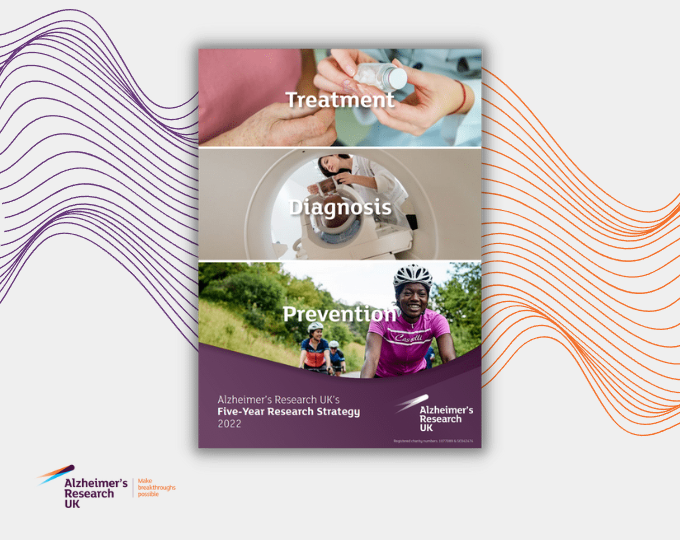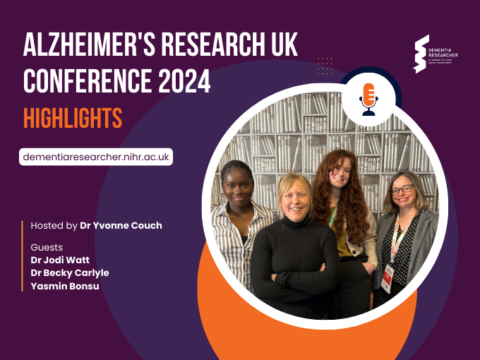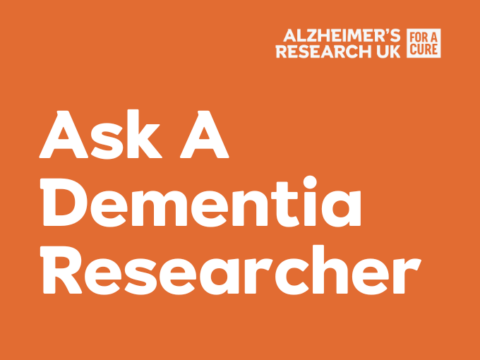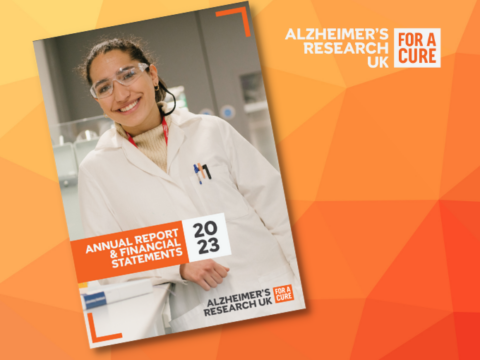
Today (31st October 2022) Alzheimer’s Research UK has launched a new 5-year research strategy. This post is shared from their website: https://www.alzheimersresearchuk.org/research/for-researchers/our-research-strategy/
Download the full strategy document (PDF)Treatment, diagnosis, and prevention are the three priority areas we are focusing to make a difference to the lives of people affected by dementia.
This research strategy has been developed by our Scientific Advisory Board, with input from people affected by dementia. It identifies and addresses the major opportunities for progress in dementia research over the coming years.
Reflecting the main challenges and opportunities for progress in dementia research, we have distilled our research strategy into three priority areas that must be tackled to make a difference to people’s lives: treatment, diagnosis and prevention.
While our new strategy focuses on these, it’s important to acknowledge that progress in all of them will be driven by continued progress in fundamental understanding of the biology of the diseases that cause dementia.
Alzheimer’s Research UK will continue to fund basic science in service of our three priority areas.
Find out more about our priority areas:
Treatment
We will accelerate the search for treatments that slow the course of dementia, and tackle its symptoms.
We will:
- Launch Clinical Trials Groups for dementia in the UK, to develop and promote innovations in dementia clinical trial designs, outcome measures and delivery mechanisms, providing a pathway for novel and repurposed medicines to be studied at pace.
- Invest in research to understand mechanisms of the diseases that cause dementia through our response mode grant rounds, our strategic partnership with the UK Dementia Research Institute and international partnerships.
- Continue to foster and invest in interactions between academic research and industry, such as our Drug Discovery Alliance and Dementia Discovery Fund, to increase the range and breadth of treatments that go into clinical studies.
- Work in partnership to promote engagement and recruitment in underserved communities.
Diagnosis
We will develop early, fast, and accurate ways to diagnose dementia.
We will:
- Develop and validate new tools that harness advances in technologies, including digital technologies, to detect early changes in brain function with a high degree of sensitivity through the Early Detection of Neurodegenerative diseases programme.
- Fund research to develop novel diagnostic tools, including digital tools, genetic, fluidic and imaging tests
- Fund research to develop diagnostic tools and biomarkers to differentiate between different forms of dementia, prioritising tools that have potential to increase impact of future treatments.
- Fund research to validate novel detection tools across different populations and invest in activities that implement new technologies into diagnostic pathways.
Prevention
We will improve understanding of the modifiable risk factors associated with dementia and make progress in risk reduction.
We will:
- Fund research that improves our understanding of the risk factors associated with dementia and how they inter-relate through our response mode grant round and in partnership with others.
- Collaborate to develop and test interventions to prevent dementia, bringing in perspectives and opportunities from other disease areas.
- Work across academic, health and public health sectors to ensure that underserved populations are included in research related to prevention and risk reduction.
Research Culture
We will ensure the research environment in the UK is conducive to rapid progress.
As the UK’s leading dementia research charity, Alzheimer’s Research UK has a duty to foster a research culture that will speed progress in research. We will continue to encourage and promote open science, data sharing, public engagement in research and will measure impacts that matter most to people affected by dementia.
In addition to this, we’ve identified three priority areas that need a step change if we are to achieve our ambitious strategy.
- Change our impact framework to ensure we collect information in inclusive ways that capture impacts that are often unacknowledged in academic research but important to building an inclusive community. These could include, but are not limited to, public engagement and outreach, supporting and mentoring of researchers new to the field, and collaborations across disciplines.
- Ensure that our event programme is inclusive, offering flexible programmes that enable individuals with caring responsibilities to participate.
- Ensure that the research we fund includes plans for equity, diversity and inclusion.
- Grow and improve patient and public involvement, seeking and building on feedback from people affected by or at risk of dementia. We will train and support people affected by dementia so they can contribute to our decision-making processes in a meaningful way.
- Support the research community, through our Research Network, to develop public engagement and involvement activities and to expand the breadth and reach to include underserved communities.
- Continue to hold an annual conference to provide researchers form around the world the opportunity to present their work, hear from others and make connections.
- Promote and incentivise multi-disciplinary collaboration through our funding schemes, network and events: including enhancing clinical involvement in our networks.

 Print This Post
Print This Post




